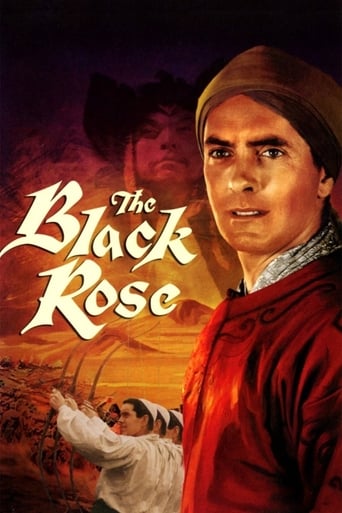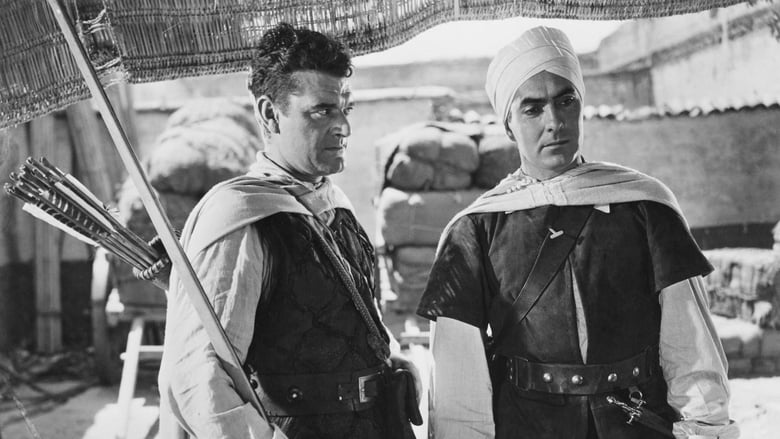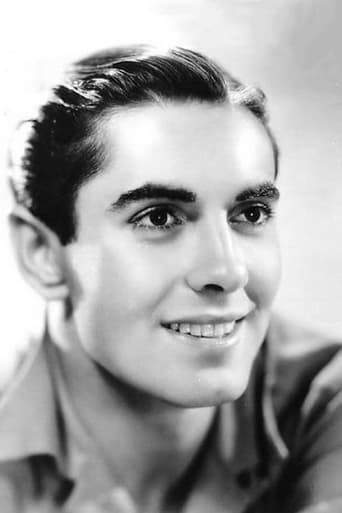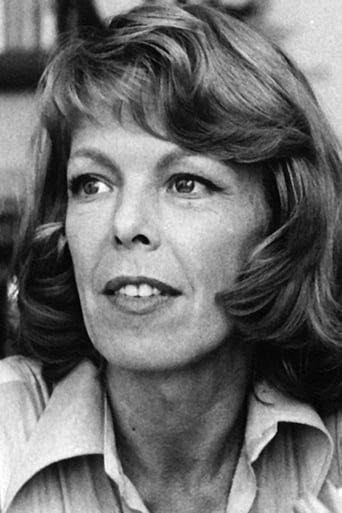The Black Rose (1950)
In the 13th century, Walter of Gurnie, a disinherited Saxon youth, is forced to flee England. With his friend, Tristram, he falls in with the army of the fierce but avuncular General Bayan, and journeys all the way to China, where both men become involved in intrigues in the court of Kublai Khan.
Watch Trailer
Free Trial Channels
Cast


Reviews
Very well executed
Am I Missing Something?
Admirable film.
In truth, there is barely enough story here to make a film.
Henry Hathaway's dull, episodic, and talky The Black Rose does have the distinction of making me want to visit England. It appears to be a lovely land, but all the blather spouted by Jack Hawkins, Tyrone Powers, Cecile Aubrey, and Orson Welles about this, that, and your England, the discount psychology, the ridiculous accents, the over-complicated derring-do-very-little make this 1950 costumer almost unwatchable. I actually was talking to the screen during this interminable Normans versus Anglo-Saxons versus Muslims versus Mongols versus Chinese mishmash. "C'mon, already!I was hoping for something even a smidgen lively. What I got was a tedious exercise, with a college-educated dip (Powers) bailing on his homeland, traveling half way across the world to find a winning cause, acting bipolar with his BFF, and generally setting Anglo-Sino relations back 800 years. Yawn.
I can't believe I'm the only one who has read the book!. And, boy, was it different. Read before the movie was made, too.But, as to the movie and considering how the film industry takes all kinds of liberties when transferring story to film it was a pretty good spectacle. Older folks will recall the "spectacles" with their "casts of thousands" etc. Okay. Jack was an alright Tristam, but in the book he became outlawed in England and died as such (from starvation, as I recall); the girl was oriental and followed Walter back to England separately. As I recall, all she could say was "Walter" and "London", but it got her back to Walter and the folks at Gurnie who had all turned merchants and were producing linen paper, etc. from tricks Walter learned in the far east.The book was so much better than the movie, especially since your can cast your own stars (if you want) and the author usually gives you pretty good descriptions of his characters. Sadly, no one in the movie comes close to my idea of what the characters looked like.
Having seen this a number of times as a late-night or Saturday-afternoon movie growing up, I caught it again yesterday on television, and was pleasantly surprised. As other posters have commented on it's faithfulness to the book or as a historical setting, I won't comment on that.Probably due to an excellent cast, the movie manages to transcend many of the (at least now accepted) clichés and is very successful. Having Welles and Powers in leading roles obviously allows them to sell the story line in a very convincing manner. I am a big fan of swashbuckler movies, but this goes beyond the bravado with good character development. The large-scale shots were magnificent. Lots of extras, animals, etc. I was drawn into the story and quite dazzled by the cinematography.Although there is nothing profound here, this is an easy film to enjoy.
This is a feature film about which viewers cannot even begin to agree. Some believe it to be a major production with award-winning costumes, good actors, a vivacious leading lady, a clever story-line and colorful thirteenth-century adventures. Others deny all these judgments and assertions. The only thing that all its fans agree upon is that the movie was unusual, worth-making and worth discussing. The novel by Thomas B. Costain is clever and perhaps not-entirely-historical. It is a fictionalized biography and a recreation of an era that sets two Saxons against their Norman overlords at a time when this may have been an old-fashioned attitude; but this gives Walter of Gurnie an excuse to leave his homeland and his studies, with a companion, Tristram Griffin, master of the English longbow, to take service with Bayan of the Hundred Eyes, General to the Great Khan of China.. The other elements in the plot line are thus Bayan's inscrutable personality--he and Walter play chess and debate; Griffin's prowess with a weapon that astonishes the Easterners who see him employ it; and the two men's love for a disguised girl who is forced to flee and joins their caravan, she who is the titular "Black Rose" of the piece. The screenplay by adventure writer Talbot Jennings (developed from Costain's logical but slightly creaky novel) is perhaps a very good one; it is my assertion that with a bit more money and a better leading lady, the film might be more famous and even more appreciated. It deserves an updated remake, in my view. The director of the piece was veteran Henry Hathaway; he makes the events seem both realistic and important, never stooping to trickery to try to inject excitement at the points where none is indicated by the script. Richard Addinsell composed the music for the film, and William C. Andrews provided the art direction. The costume designs by Michael Whittaker I find to be quite serviceable and good for the period, but not extremely exciting. The cinematography by Jack Cardiff is as beautiful as it always is; the film looks as good as budgetary constraints permit in either B/W or color, which is quite a feat. it is played as an adventure; I believe it could be refashioned as a dramatic work; but what we have here is an engaging and rewarding script and production. Tyrone Power is a bit too-old for a student, but he is attractive and vivid in the lead. Jack Hawkins steals the film due to his charisma, energy and award-level interpretation of Tristram. Orson Welles is interesting and enigmatic as the general. As the Black Rose, Cecile Aubrey is adequate, often charming and able to get the basics of her very youthful part across but not much more. Michael Rennie, Finlay Currie. Herbert Lom, Mary Clare, Henry Oscar as Roger Bacon and Laurence Harvey are also featured. I like the film, and have good memories of reading the novel and seeing it years ago. It holds up well, due to its solid construction; but I yearn to remake it as a drama worthy of the very-interesting story-line even moreso. Watch for the great archery contest--surely the visual highlight of this adventure production.








